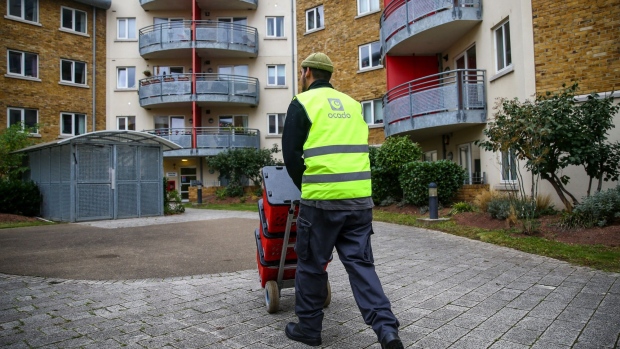Feb 9, 2021
Ocado Retail Sales Growth Dependent on Ramping Up Capacity
, Bloomberg News

(Bloomberg) -- Ocado Group Plc said its retail revenue growth this year will depend on how quickly it can ramp up capacity to handle demand for online grocery shopping that’s thriving during the pandemic.
The company’s retail revenue jumped by 35% in 2020, as the U.K. delivery arm that’s jointly owned with Marks & Spencer Group Plc gained popularity among Covid-wary customers favoring e-commerce over supermarkets. That fueled Ocado’s overall performance, with earnings of more than 73 million pounds ($100 milllion) just ahead of the company’s upgraded forecast.
Ocado has not always been able to meet demand for deliveries because its automated warehouses take time and considerable investment to build. The company is more bullish on prospects for its technology licensing arm, saying invoiced fees will grow about 30% in 2021.
Ocado has formed partnerships with grocers including Kroger Co. in the U.S. and Japan’s Aeon Co., and has opened automatic warehouses for Casino Guichard-Perrachon SA in Paris and Sobeys Inc. in Toronto.
Founded in 2000 by three Goldman Sachs bankers, Ocado has never made a meaningful profit, but its value has soared as it continues to sign new licensing deals worldwide. In 2020, Ocado’s share price jumped by nearly 80%.
Ocado plans about 700 million pounds of capital expenditure this year as it expands the automated warehouse business. The company’s growth could be impeded, however, if patent infringement action brought in the U.S. and U.K. by AutoStore Technology AS succeeds.
The Norwegian maker of automated storage retrieval systems claims Ocado has infringed its intellectual property and patents and is seeking to block its expansion in the U.K. and U.S. Ocado denies this and has accused AutoStore of fraudulently obtaining U.S. patents for its robotic system.
©2021 Bloomberg L.P.





